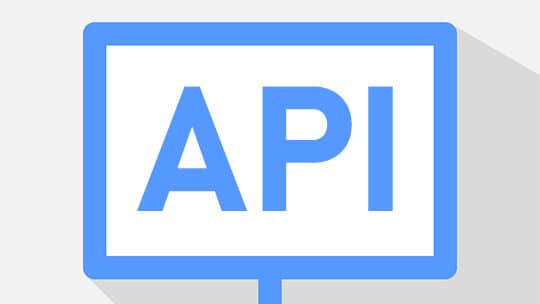The development of a travel platform requires meeting ever-evolving user requirements. That’s no small task. Present-day travel applications must handle all travel-related features and execute processes at high speed. Thankfully, Travel APIs serve as the solution that allows developers to achieve this task so that they don’t have to do everything from scratch.
Using appropriate APIs enables developers to cut down their development hours and gain access to enhanced functionality in both new booking system development and platform enhancements. In this blog, you’ll find the best travel APIs you can use for every travel data requirement you come across, such as flight booking, accommodation pricing, tour content, car rental features, and more.
Time to choose the appropriate tools that suit your project requirements. Let’s get into it.
What’s a Travel API, Anyway?

API stands for Application Programming Interface. Through APIs, two different systems establish communication by creating a technical connection.
APIs enable developers to retrieve current travel information from different data sources so they can show it directly on their application screens or websites. Users do not require changing sites during their experience. It all happens in one place.
The following list contains the most valuable APIs after finishing our introductory lesson.
Top Flight APIs for Booking, Pricing & More

1. FlightAPI
If your focus is real-time flight status, schedules, and prices, FlightAPI is an efficient option. It’s fast, reliable, and ideal for developers who want data without the complexity.
- Best for: Lightweight apps, real-time data dashboards.
- Pros: Clean documentation.
- Cons: Doesn’t support booking.
2. Amadeus API
Amadeus is a powerhouse. Airlines, agencies, and booking platforms rely on it for flight data, pricing, seat maps, booking functionality, and more. It’s got two sets of APIs: Self-Service and Enterprise.
- Best for: Complex travel platforms and larger businesses.
- Pros: Access to deep fare rules, predictive pricing, and route suggestions.
- Cons: Requires a consolidator for ticketing; expensive for small businesses.
3. Skyscanner API
Perfect for price-savvy platforms. The Skyscanner API offers flight search, filtering by price, date, and cabin class, and lets users compare across airlines.
- Best for : Travel aggregators and mobile travel apps.
- Pros: Great support, easy integration, JSON & XML response.
- Cons: Region availability can be limited.
4. Sabre API
Sabre’s got you covered from flights to seat maps and even ticketing. You can manage reservations, change itineraries, and handle payments all through their API suite.
- Best for: Enterprise-level travel systems.
- Pros: Advanced itinerary management and analytics.
- Cons: Commercial usage can come with high costs.
5. FlightAware AeroAPI
Need airport-level data? AeroAPI pulls from millions of flight status updates. It’s perfect for flight tracking and aviation-related apps.
- Best for: Apps that display aircraft movement or airport conditions.
- Pros: Covers historical and live flight data.
- Cons: Data accuracy may fluctuate in real time.
6. Kiwi Tequila API
This one’s known for virtual interlining — combining flights from different carriers. It’s perfect for building itinerary generators.
- Best for: Price-sensitive flight search tools.
- Pros: Covers over 700 airlines, with booking and refund options.
- Cons: Limited to specific regions.
7. Travelfusion API
Used by many low-cost airlines, this API handles flight and accommodation searches with Direct Connect XML for fast, real-time booking.
- Best for: Budget airline aggregators.
- Pros: Lightweight, good for rapid searches.
- Cons: May require deeper technical setup.
Best Hotel APIs for Real-Time Booking & Pricing

8. MakCorps API
MakCorps API compares hotel prices from over 200 OTAs in a single GET request. It also provides historical data for analysis.
- Best for: Hotel comparison sites.
- Pros: Clean documentation and quick responses.
- Cons: Doesn’t support bookings.
9. Booking.com API
Want to pull hotel listings, availability, pricing, and photos? Booking.com’s API gives you all of that. It supports bookings directly within your platform.
- Best for: Full-service hotel booking platforms.
- Pros : Rich content, global reach, trusted brand.
- Cons: May incur additional fees.
10. Hotelbeds API
Hotelbeds offers massive global inventory and easy access to room availability, descriptions, and booking options.
- Best for: Global hotel aggregators.
- Pros: Huge inventory and real-time access.
- Cons: Setup might require dev expertise.
11. Cloudbeds API
If you’re building something for hotels themselves, Cloudbeds provides access to bookings, guest data, and adjustments. It’s used by property managers worldwide.
- Best for: PMS (Property Management System) developers.
- Pros: Secure, global reach, supports rate changes, and guest info.
- Cons: Rate limits during peak usage.
12. Hotel API
Looking for real-time pricing data from OTAs? This one’s ideal. It’s focused on pricing intelligence and supports small-to-mid-sized platforms.
- Best for: Market analysis tools.
- Pros: Transparent pricing and easy integration.
- Cons: Booking isn’t available through the API.
Car Rental APIs to Add Ground Transport

13. CarTrawler API
CarTrawler connects you with 1700+ suppliers across 150 countries. You can offer cars, taxis, and airport shuttles through a single API.
- Best for: Travel apps looking to offer all-in-one trip planning.
- Pros: Global coverage, multiple transport modes.
- Cons: Customer support may vary.
Experience & Tour Booking APIs

14. GetYourGuide API
Want to integrate city tours, museum tickets, or local attractions? GetYourGuide’s API covers all of that, with real-time booking and cancellation.
- Best for: Travel platforms focused on experiences.
- Pros: Rich content and reliable data.
- Cons: API complexity for custom filters.
15. Tiqets API
Tiqets focuses on tickets for museums, events, and exhibitions. It’s a three-stage booking flow: discover, check availability and book.
- Best for: Local experience booking apps.
- Pros: Detailed metadata, photos, cancellation info.
- Cons: Limited outside major tourist destinations.
Travel Utility APIs

16. Google Maps API
Still a must-have for any travel platform. Add maps, directions, time zones, geolocation, and points of interest with ease.
- Best for: Route planning, travel discovery, location-based searches.
- Pros: Reliable and developer-friendly.
- Cons: Costs can add up quickly on high-traffic apps.
17. TripAdvisor API
Want user reviews, photos, and ratings? TripAdvisor’s API lets you pull trusted content to boost credibility and guide decisions.
- Best for: Travel blogs, hotel pages, review aggregators.
- Pros: Huge review base and recognition.
- Cons: Limited to consumer-facing travel platforms.
18. Numbeo API
This one’s a bit different — it gives you the cost of living, safety scores, and pollution levels for cities worldwide. Great for travel planning apps.
- Best for: Relocation tools, expat platforms.
- Pros: Deep city-level insights.
- Cons: Subscription required for commercial use.
19. RoadGoat API
Get location profiles with budget, safety, tags like “known for,” and booking links. It’s designed for travel discovery and exploration.
- Best for: Travel recommendation platforms.
- Pros: 4 million+ locations and community-driven tags.
- Cons: The free tier has limitations.
Why Use Travel APIs in the First Place?

The short answer: Your platform operates with sharper speed through travel APIs, which deliver several important advantages. Here they are:
- Flight information, hotel room availability, and tour bookings are updated frequently through real-time data functions. APIs ensure real-time sync of information data.
- User experience is enhanced through application functionality, which allows searches, comparisons, and bookings within the same platform.
- The availability checking, pricing, and booking processes that run automatically through APIs reduce human labor in these operations.
- Extra income possibilities exist through tour package bundles with transportation offers alongside optional insurance options.
- Customers can develop their products much faster through ready-made, pre-built services.
Real-World Use Cases of Travel API Integration

The practical application of travel APIs within companies requires shifting our focus from technical details to seeing their current use in real business operations. Several businesses implement travel APIs, which transform their platforms into smarter, stronger, and more profitable platforms for their users.
- Online Travel Agencies (OTAs): Online booking platforms such as Expedia and Booking.com serve as good examples. Multiple travel APIs come together through one interface that creates a unified search-friendly platform for customers to use. APIs deliver constant updates about inventory levels and prices, together with booking capacity that keeps their platforms operational around the clock.
- Mobile Travel Apps: Mobile apps Hopper and TripIt gain operational power through APIs to predict flight costs and create travel schedules. APIs power all crucial updates and suggestions that customers need for hotel bookings, flight statuses, and destination recommendations. The user gets information through these tools while the app avoids storing any manually entered data.
- Hotels and Property Management Systems: The hotel management system, Cloudbeds and Hotelbeds, lets hotels keep their rooms synchronized among different platforms. This system enables automated rate management as well as reservation control and channel manager interaction through complete automation.
- Corporate Travel Platforms: The business travel management of Concur and TravelPerk operates through integrated APIs. These connections enable simple and streamlined management of flight bookings along with expense tracking for all tasks.
- Niche Marketplaces: Specialized travel platforms that target particular experiences pair up with GetYourGuide, Tiqets, or RoadGoat API systems to supply additional local destination resources, such as activities and ticket services, and destination information.
Final Thoughts

The decision to select an appropriate API will define how successful your travel tool-building project becomes, whether you plan to build a specialized or comprehensive booking solution. Begin by identifying user requirements for flights, hotels, tours, and transportation, then choose APIs that provide rapid delivery of accurate and adaptable data.
The full integration process should not happen all at once. When starting a stack, begin with essential components, then test these elements to identify which ones perform best before progressing the stack development with your growing platform.
Frequently Asked Questions (FAQs)

Q: Which travel API is best for flights + hotels combined?
Amadeus and Sabre both offer full-stack booking APIs that cover air, hotel, and even car rentals. For budget-focused apps, Skyscanner and Booking.com work well together.
Q: Can I use multiple APIs at once in my travel app?
Yes, and in many cases, you should. It’s common to use one API for flights, another for hotel pricing, and a third for activities or weather data.
Q: Do I need a paid plan to start?
Not always. APIs like FlightAPI, Skyscanner, and MakCorps offer free tiers for testing. Just be aware of the call limits and scale when needed.





